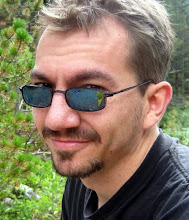An interesting article on Slate about prescription pill abuse.
That's because over the last two decades, the pharmaceutical industry has developed a full set of substitutes for just about every illegal narcotic we have. Avoiding the highly charged politics of "illegal" drugs, the pharmaceutical industry, doctors, and citizens have thus quietly created the means for Americans to get at substitutes for almost all the drugs banned in the 20th century. Through the magic of tolerated use, it's actually the other drug legalization movement, and it has been much more successful than the one you read about in the papers.
...
That's why drug legalization is happening in a wholly different way. Over the last two decades, the FDA has become increasingly open to drugs designed for the treatment of depression, pain, and anxiety—drugs that are, by their nature, likely to mimic the banned Schedule I narcotics. Part of this is the product of a well-documented relaxation of FDA practice that began under Clinton and has increased under Bush. But another part is the widespread public acceptance of the idea that the effects drug users have always been seeking in their illicit drugs—calmness, lack of pain, and bliss—are now "treatments" as opposed to recreation. We have reached a point at which it's commonly understood that when people snort cocaine because they're depressed or want to function better at work, that's drug trafficking; but taking antidepressants for similar purposes is practicing medicine.
Anymore it seems that the answer to any problem is medicine/drugs. When people get a cold, they drink cough syrup, snort decongestants, pop pain pills, and whatever else they think they need. It's a short jump from there to "I need a pick-me-up. How about some Ritalin?" Why do so many people feel they can't cope with their life without drugs, whether illegal or not?




No comments:
Post a Comment